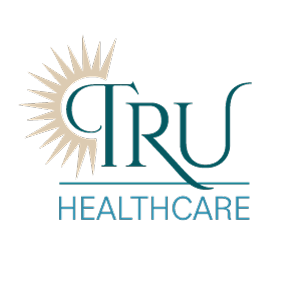Our health care model transitioned to an innovative, proactive approach over the past several years. A focus on the areas of diet, exercise, preventative clinical services, and a high emphasis on monitoring areas of concern is shifting the way care is delivered. While strides have been made in these areas, it is rare that changes to one’s memory are met with such a proactive approach. So often today outreach for support is not initiated until a critical event such as financial loss, exploitation, wandering, or failure to thrive has occurred. As a comprehensive provider of home health care, HealthStar Home Health knows firsthand that early detection of memory issues leads to early intervention, and the ability for family to plan together.
The reasons for ignoring memory changes could include embarrassment, denial, and fear, so it is understandable why many may fall into this critical misstep. A typical response from an individual who notices changes to his or her memory is to hide the problem, concerned that a diagnosis of Dementia or Alzheimer’s disease in inevitable. Those close to that individual may harbor similar fears as well. This perpetual cycle makes it difficult to enter into tough dialogue, often resulting in the memory issue developing quietly but profoundly.
What is not well known is that there are many causes for memory loss, many being curable and treatable if recognized early. By regularly integrating memory screenings Health Care professionals can become a catalyst for change and construct critical conversations with their patients around memory concerns. While a memory screening will not diagnose a memory issue, it is the first step in identifying a problem and it will subsequently trigger further diagnostic testing. We need to encourage and empower all those who have concerns that they or their loved ones are experiencing memory changes to discuss those concerns with their health care providers and request memory screening.
If further diagnostic testing reveals a diagnosis of Alzheimer’s or other Dementias, remember, the benefits of earlier diagnosis include improved management of the disease, ability to treat and mange co-existing conditions, and the opportunity to help patients and their families plan ahead. Caring for loved ones with Alzheimer’s or Dementia has a huge impact on their care partner’s ability to achieve work-life balance. According to the coalition for Preparing Minnesota for Alzheimer’s, working caregivers report their caregiving responsibilities affect their work. 57% report arriving to work late. 17% have taken a leave of absence. 10% switch from full-time to part-time hours. 9% left the work place completely as a result of their caregiving responsibilities. The average cost to U.S employers of full-time employees who are caregivers totals $33.6 BILLION per year in lost productivity. (Preparing Minnesota for Alzheimer’s , 2011). These staggering numbers identify a critical need for supporting caregivers to manage their stress through education, training, and supportive services.
In 2013, HealthStar Home Health, in collaboration with C&V Senior Care Solutions, integrated a comprehensive home care program called Becoming an Alzheimer’s Whisperer. Paid completely through the Medicare home care benefit, Becoming an Alzheimer’s Whisperer supports the person, the caregiver and, the family to manage the diagnosis and the challenges that surround it. Becoming an Alzheimer’s Whisperer teaches families to understand how the disease affects the brain and enable the caregiver to enter the world of the person who has dementia or Alzheimer’s. Caregivers are trained to handle behaviors which include uncooperative behavior, agitation, aggression, wandering, sun-downing, sexually acting-out, dressing and bathing difficulties, eating difficulties, repetitive behaviors, and more. The program incorporates a multi-disciplinary approach and utilizes Skilled Nurses, Occupational Therapists, Physical Therapists, Social Workers, and Speech Pathologists. It uses standardized evidence-based teaching and assessment tools, and is based on the theory of Retrogenesis, developed by Dr. Barry Reisberg. Retrogenesis means “back to birth”, which concludes that Alzheimer’s unravels the brain almost exactly in reverse order as the brain developed from birth. This foundational understanding provides a method of creating approaches, environments, and techniques based on the developmental stage that correlates with the stage of dementia. The patient and the Caregiver will demonstrate competent self-care skill management of Alzheimer’s disease including a full range of behavioral, physical, social, and spiritual implications of this disease in order to remain safe at home.
By initiating supportive services upon diagnosis or at the initial onset of problematic behaviors, families receive help before it reaches crisis level. This proactive approach can successfully increase the quality of life for patients and their families affected by this dynamic disease.
-Shannon MacKenzie
Area Manager
HealthStar Home Health

